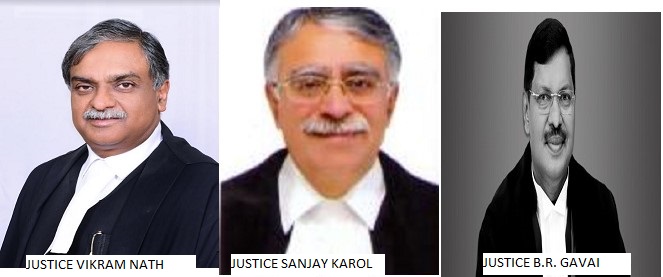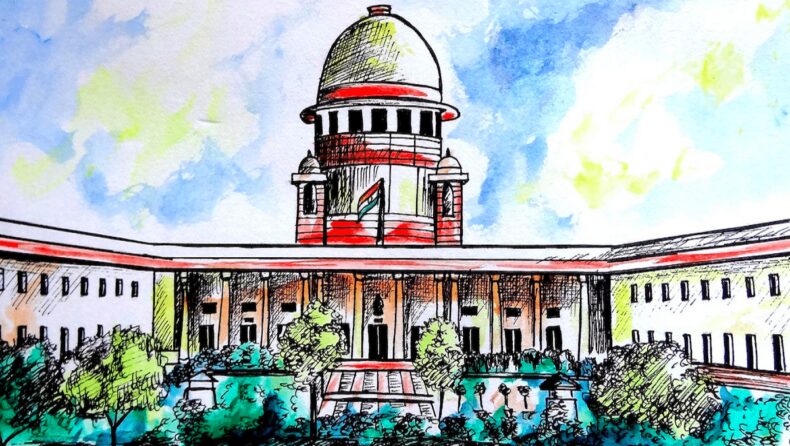The Supreme Court held that the prosecution was not able to establish guilt ‘beyond reasonable doubt’, hence the appellants are entitled to ‘benefit of doubt’ and thus set aside judgement of the High Court which had upheld their conviction for a murder that happened in 1989.
Table of Contents
Background
The Hon’ble Court was hearing an appeal filed against the judgement of Gauhati High Court which had confirmed the conviction order of the Trial Court wherein 11 persons were convicted for murder. 4 out of the 11 convicted persons filed an appeal in the Apex Court.
Prosecution story
The prosecution presented the facts that, the day the complainant filed the FIR i.e. June 6, 1989, on the same day at noon 13 villagers entered their house, cordoned her off her house, caused grievous hurt to her brother in law (Robi Phukan) and committed murder of Pradip Phukan. The police came later, made necessary enquiries, completed all formalities, sent the body for post mortem and ultimately filed chargesheet in May, 1991.
The prosecution examined 7 witnesses and proved requisite documents.
Facts raised by appellants
The appellants raised the points that the prosecution did not touch that fact about the sketchy FIR; three of the witnesses have affirmed that police was present at the time of the incident and if they were present why was the incident reported by the complainant and not the police personnels themselves; even though there were atleast 5 police personnels present why did they let the accused absconded; no evidence has been given to establish common object required for unlawful assembly; statements given by the first informant is a better version of the FIR.

Analysis by the Supreme Court
The 3 judges bench of the Supreme Court presided by Justice Vikram Nath, Justice B.R. Gavai and Justice Sanjay Karol, analysed all the evidence presented before them and concluded various issues.
- That the prosecution should not accept the complainant’s version as the ‘Gospel Truth’ and blindly proceed in that direction. There should be a fair and transparent investigation to extract out the truth.
- The Trial Court should also carefully scrutinise the evidence and where ever possible should make further inquiry if the circumstances create doubt and the investigation appears to be unfair or tainted. If the Trial Court fails to exercise its power then it cannot be said to be a fair trial and the judgement is said to be vitiated. The Court noticed the fact that the Trial Court even after acknowledging the fact that police personnels had accompanied the accused, failed to get clarification from the prosecution.
- The Court also acknowledged the fact that testimony by the first informant appears to be a tutored one, as the statement given on record and the FIR are materially different.
- Regarding the contention of unlawful assembly the Court held that the prosecution has not been able to establish evidence of ‘common object’ and thus discarded the conviction made under Section 149 of the Indian Penal Code.
- That the entire prosecution story creates some serious doubts. It is quite possible that the police accompanied the accused to arrest the deceased and his brother and in the process some incident may have resulted in the death of the deceased.
- The Court went on to observe, “ It is quite possible that it was a complete set-up by the police. They having committed the murder in the process of arresting the deceased, and thereafter, knowing the enmity between the two parties, set-up a false case against the accused.”
Conclusion
The Supreme Court set aside conviction and sentence of the 4 appellants and held that even though the death of the Pradip Phukan appears to be homicidal but the prosecution has failed to establish his case beyond reasonable doubt and hence the accused are entitled to be acquitted on the ground of benefit of doubt.
Case Title: Pulen Phukan & Ors. Versus The State Of Assam (2024 LiveLaw SC)













